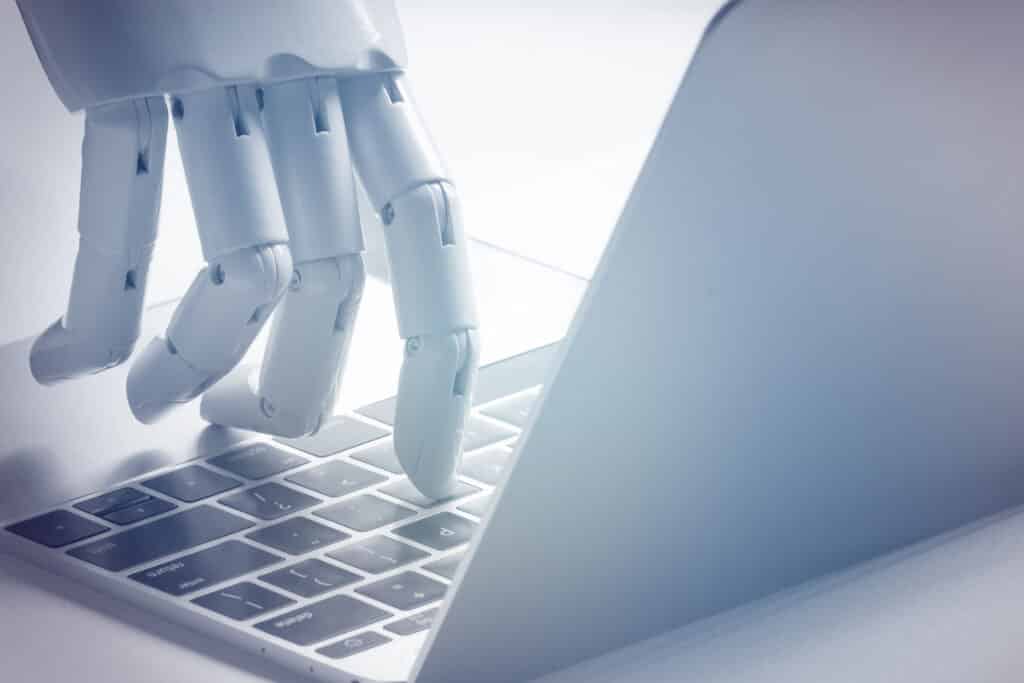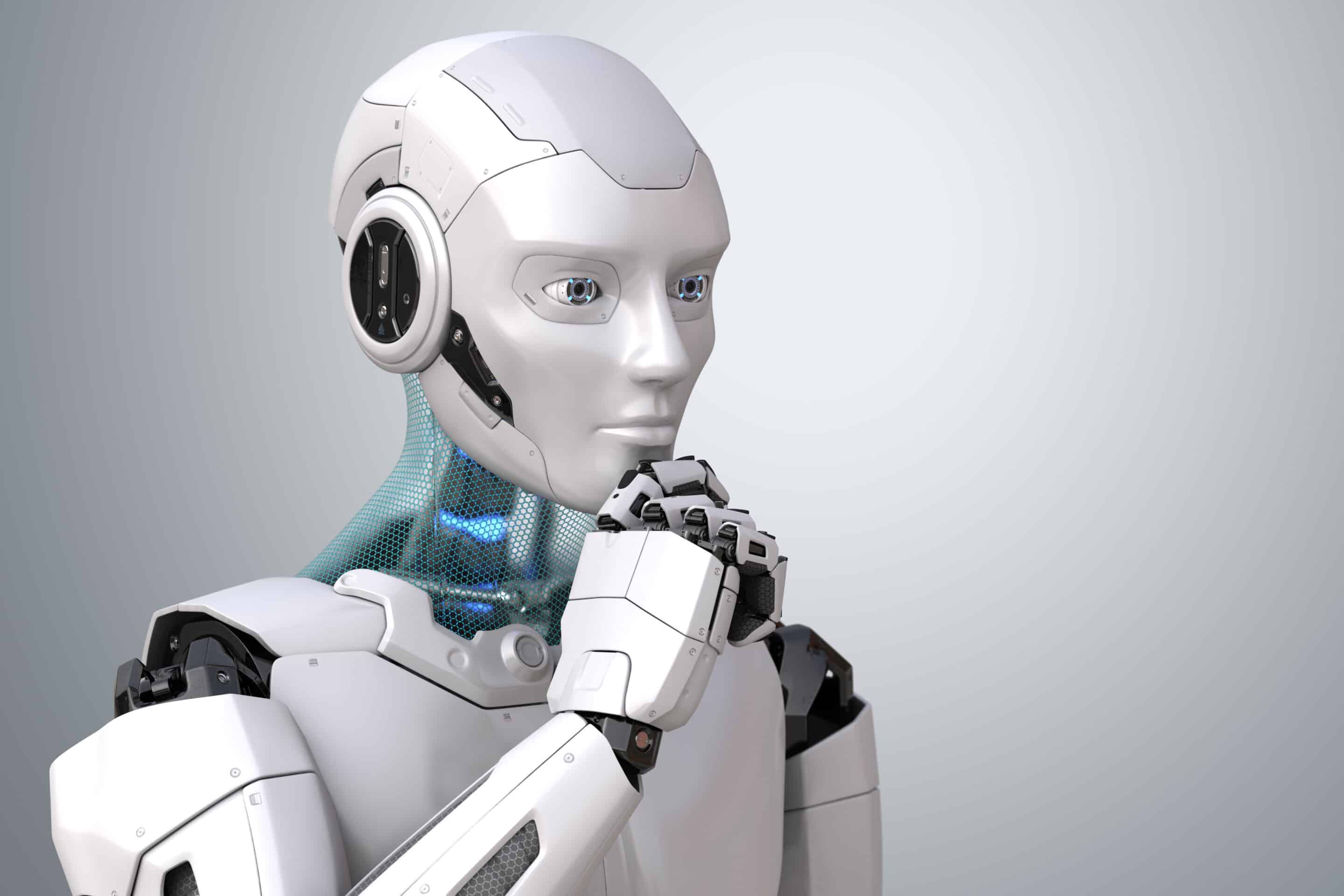Once the secret home of World War Two codebreakers, Bletchley Park became the backdrop for another enigma last month, as international governments, tech companies, civil society groups and academics gathered to discuss AI (or, more specifically, the risks posed by it).
As a tech recruiter, The Bridge were keen to keep a close eye on the summit as we continue to track where AI is heading and what that will mean for job roles, competencies, and competition for talent.
Here, Chris Fernyhough, Director – Tech & Data Recruitment Solutions, discusses some of the key take homes from the event, along with the growing narrative around the UK’s AI ambitions, and the paradox of a growing sector with a less significant demand for skills that many might expect.
What was the AI Summit for?
While acknowledging the huge potential of frontier AI models, not only as drivers of economic growth and scientific progress, but of wider public benefits, the AI Safety Summit’s primary aim was to identify potential safety risks and agree on a range of measures designed to mitigate them.
Specifically, the Summit’s five key objectives were:
- A shared understanding of the risks posed by frontier AI and the need for action.
- A forward process for international collaboration on frontier AI safety, including how best to support national and international frameworks.
- Appropriate measures which individual organisations should take to increase frontier AI safety.
- Areas for potential collaboration on AI safety research, including evaluating model capabilities and the development of new standards to support governance.
- Showcasing how ensuring the safe development of AI will enable AI to be used for good globally.
- Attendees included the UK Prime Minister, Rishi Sunak; the US vice-president, Kamala Harris; and the European Commission president, Ursula von der Leyen; as well as several award-winning computer scientists and a variety of execs from leading AI companies. And Elon Musk.
There were some tangible outputs from the event including 28 countries signing The Bletchley Declaration on AI safety, and world leaders and developers of frontier AI systems recognising the need to work together on testing the next generation of AI models against a range risks, resulting in a joint statement on AI safety testing. The countries represented at Bletchley Park agreed to support the development of a ‘State of the Science’ report, led by the Turing Award-winning scientist Yoshua Bengio, that will help to build international consensus on the capabilities and risks of frontier AI.

What does the AI skills landscape look like?
Unsurprisingly, a mixture of viewpoints were expressed during the two-day AI Summit, perhaps the most controversial and memorable of which was Elon Musk’s assertion that AI will one day eradicate the need for anyone to have a job.
That’s a tricky message to manage for a government keen to put the UK at the forefront of innovation and due diligence for AI. It is potentially even the opposite of what the summit had hoped to portray – that the UK will be a hotbed of AI talent, driving innovation.
So where does the reality lie?
Realistically, the truth is somewhere in between those perspectives.
Firstly, it’s important to establish that, while the AI boom may be relatively recent and all the rage with the media, AI technology is not new. And while the UK is keen to lead the charge for an AI enabled future now, historically, we have not invested heavily enough in the high level, niche skillsets that have enabled the development of AI tools.
So where does that leave us? AI is a disruptive technology and, because the tools now exist to enable machine learning to develop more AI capability, the skills needed to progress that capability are much more conventional than many might expect. While an increasing number of candidates are listing AI as part of their professional experience, few roles demand AI specifically as a core competency.
But we are a long way away from Elon Musk’s vision of a future where we all put our feet up and switch our brains off. The AI boom is creating opportunities for candidates with technical skills because AI tools need to continue learning and the technology has to be developed in a way that makes it useful for what businesses need. AI also needs a user interface that works for humans, along with integration with existing operational systems.
Consequently, machine learning operational engineers and data scientists are needed to deliver AI projects and channel this technology towards applications where it will be useful, beneficial and relevant. It might be entertaining to ask Chat GPT to write a song about your dog in the style of Bob Dylan, but the potential of AI is huge. It needs those with the vision and skills to implement projects which harness that potential.
For example, we are working with a client that is in the early stages of a project to create a digital twin for a large, complex and tech-enabled built asset. Their requirement is for developers to implement the transformation project, rather than for machine learning engineers to develop the tools, so that the digital twin can, in the future, be self-maintaining.
Where next for AI in the UK?
Following the Summit, the Secretary of State for Science, Innovation and Technology, Michelle Donelan, described the UK as a country “consistently recognised as a world leader in AI”, while Prime Minister Rishi Sunak claimed Britain is “home to the transformative technologies of the future”.
But AI is a constantly evolving sector. While it contributed £3.7bn to the UK economy last year and is seeing substantial investment from both tech companies and traditional businesses – such as banks and retailers – the safety measures discussed at Bletchley, along with the infrastructure needed to power the AI revolution, are just two of the influencing factors that will help determine the speed and scale of change.
Fundamentally, high level AI skills are in short supply in the UK, but that is not an obstacle to the UK’s AI ambitions. What we need is an ability to apply the skills we have to the AI tools that already exist, and at The Bridge, we can help you find qualified, culturally aligned talent with those skills, supporting you through the full recruitment lifecycle. For more information, get in touch today.

